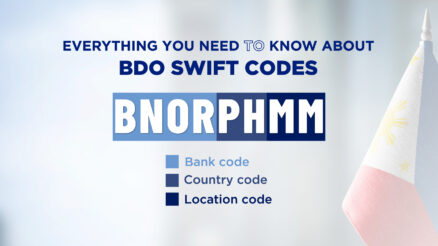In an increasingly complex financial landscape, the role of commercial banks in our lives has never been more important. Whether you are considering the significance of a savings account to secure your financial future, looking for a personal loan to fund a significant purchase, or interested in obtaining a credit card, commercial banks play a pivotal role in meeting these diverse financial needs. They are the familiar institutions where we conduct the majority of our banking activities.
In this article, CashLoanPH will delve into the world of commercial banks in the Philippines, exploring the diverse range of financial products and services they provide to individuals and businesses alike.
What Is a Commercial Bank?
A commercial bank is a financial institution that specializes in facilitating various financial transactions. These transactions include accepting deposits, offering checking account services, and extending loans to both individuals and businesses. Commercial banks typically offer a range of financial products, including savings accounts tailored to individuals and small businesses, as well as certificates of deposit (CDs).
In the Philippines, commercial banks derive a significant portion of their revenue from the interest earned on the loans they grant to consumers. These loans encompass a variety of offerings, including mortgages for homes, financing for automobiles, and personal loans. The funds allocated for these loans primarily come from customer deposits, including checking and savings accounts.
For instance, when you deposit money into a savings account, you are essentially lending funds to the bank. In return, you receive interest on your deposited funds. However, it’s important to note that the interest rates you earn on your deposits may be lower than the rates charged by the bank on the funds they lend out.
Commercial banks operating in the Philippines are subject to regulation by the Bangko Sentral ng Pilipinas (BSP). The BSP enforces various regulations and establishes minimum capitalization requirements for these banks to ensure their stability and adherence to financial standards.
Exploring the Distinctions Between Commercial Banks and Investment Banks
Commercial banks and investment banks are two pivotal pillars of the financial industry, each playing distinct roles in the economic ecosystem. Understanding these differences is crucial for anyone navigating the world of finance, whether you are an individual seeking personal banking services or a corporation pursuing complex financial strategies. In this article, we will delve deeper into the unique characteristics and services offered by these two types of financial institutions.
Investment Banks: Focused on Institutions and Capital Management
Investment banks primarily serve the interests of large institutions, such as corporations, governments, and other sizable entities. Their core functions encompass a wide spectrum of financial activities that revolve around the management of capital, facilitating the creation of capital, and playing a pivotal role in underwriting debts. Beyond this, investment banks also specialize in orchestrating mergers and acquisitions (M&A), acting as intermediaries in these complex transactions. Furthermore, they excel in assisting large organizations in connecting with potential investors by overseeing the issuance of bonds and stocks.
Investment banks are the architects of complex financial transactions, often serving as trusted advisors to major corporations. They play a crucial role in raising capital for businesses, facilitating the issuance of stocks and bonds, and providing strategic financial advice.
Commercial Banks: The Hub of Individual and Small Business Finance
In sharp contrast, commercial banks are the go-to institutions for individuals and small businesses when it comes to meeting their financial needs. Their core focus revolves around offering a diverse array of financial products and services, making them the cornerstone of everyday financial transactions for regular individuals and budding entrepreneurs.
Commercial banks cater to the everyday financial needs of individuals and small businesses. They offer services ranging from basic checking and savings accounts to loans for homes, cars, and personal expenses. These banks serve as the financial backbone of communities, providing essential services that enable individuals to manage their finances and businesses to thrive.
A Deeper Dive into Commercial Bank Products and Services
Commercial banks in the Philippines, like their counterparts worldwide, provide a wide array of financial products and services to cater to the diverse needs of consumers and businesses alike. Here is a more extensive look at the typical banking offerings available in this dynamic sector:
1. Deposit Accounts: Safekeeping Your Funds
Commercial banks offer secure and flexible options for individuals and businesses to store their money. Depending on your financial objectives and liquidity requirements, you can choose from various types of deposit accounts:
a. Savings Accounts
Savings accounts are ideal for individuals looking to earn a modest interest rate while keeping their funds readily accessible. They provide a safe place to park your money and often come with features like ATM access and online banking.
b. Checking Accounts
Checking accounts are designed for everyday transactions. They offer the convenience of writing checks, making electronic payments, and using debit cards. Many checking accounts come with no or low fees, making them suitable for daily financial activities.
c. Time Deposit Accounts
Time deposit accounts, also known as certificates of deposit (CDs), offer higher interest rates in exchange for locking in your funds for a fixed period. This is an excellent option for individuals seeking higher returns on their savings.
2. Credit Cards: Empowering Financial Transactions
Commercial banks are also the primary source for obtaining credit cards, catering to both first-time cardholders and experienced users. Credit cards provide a convenient means of spending via credit for various goods and services, enhancing your financial flexibility. They come with various features, including rewards programs, cashback offers, and low-interest rate options.
3. Loan Services: Meeting Diverse Financial Needs
One of the core functions of commercial banks is providing access to credit through a wide range of loans:
a. Car Loans
Car loans enable individuals to purchase vehicles by providing financing options with competitive interest rates and flexible repayment terms.
b. Mortgages
Mortgages are long-term loans used to purchase homes. Commercial banks offer various mortgage products, including fixed-rate and adjustable-rate mortgages, to suit borrowers’ needs.
c. Personal Loans
Personal loans are versatile financial tools that can be used for a variety of purposes, such as consolidating debt, covering medical expenses, or funding a vacation. They typically have fixed interest rates and structured repayment plans.
d. Business Loans
Commercial banks play a vital role in supporting small businesses by offering business loans for expansion, working capital, and other financial needs. These loans help entrepreneurs realize their business goals and contribute to economic growth.
4. Treasury Management: Optimizing Fund Utilization
For enterprise clients, commercial banks provide treasury management services designed to help organizations maximize the utilization of their funds. These services focus on streamlining financial operations, enhancing overall financial efficiency, and mitigating risks associated with cash management.
Treasury management services encompass cash flow forecasting, payment processing, risk management, and liquidity optimization. They are essential for businesses of all sizes to ensure their financial stability and growth.
5. Insurance Coverage: Protecting Against the Unexpected
Commercial banks also serve as providers of various insurance policies, offering protection against financial losses arising from unforeseen events and emergencies. These insurance products provide individuals and businesses with an added layer of financial security and peace of mind.
a. Life Insurance
Life insurance policies provide financial protection to beneficiaries in the event of the policyholder’s death. They come in various forms, including term life insurance, whole life insurance, and universal life insurance.
b. Property Insurance
Property insurance covers losses or damage to property caused by events such as fire, theft, natural disasters, and accidents. It includes homeowners’ insurance, renters’ insurance, and commercial property insurance.
c. Health Insurance
Health insurance policies provide coverage for medical expenses, including doctor visits, hospital stays, prescription drugs, and preventive care. Health insurance is essential for individuals and families to manage healthcare costs.
6. Wealth Management: Tailoring Financial Solutions
For clients seeking comprehensive financial planning and investment advisory services, commercial banks in the Philippines offer wealth management solutions. These services combine a range of financial offerings to address specific financial objectives, ensuring that clients receive tailored, well-rounded financial guidance.
Wealth management services go beyond traditional banking products to encompass investment portfolio management, retirement planning, estate planning, and tax optimization. They are designed to help individuals and families build and preserve their wealth over the long term.
Top 10 Commercial Banks in the Philippines in 2025
Now that we have explored the fundamental role of commercial banks and their wide range of financial products and services, let’s take a closer look at the top 10 commercial banks in the Philippines for the year 2025:
1. BDO Unibank, Inc. (BDO)
BDO Unibank, Inc. (BDO) stands as the largest bank in the Philippines in terms of total assets, deposits, and loans. With an extensive network of branches and ATMs nationwide, BDO offers a wide range of banking products and services. It’s also a leader in digital banking, receiving recognition for its innovative use of technology.
BDO’s commitment to innovation and customer service has made it a trusted partner for individuals and businesses alike. The bank’s digital platforms enable customers to conveniently manage their accounts, make payments, and access financial services anytime, anywhere.
2. Land Bank of the Philippines (LBP)
Land Bank of the Philippines (LBP) is a government-owned bank committed to providing financial services to farmers, fisherfolk, and other low-income borrowers. It also offers a wide range of banking products and services to the general public, with a strong presence in rural areas, promoting financial inclusion for all Filipinos.
LBP’s mission is to support the agricultural sector and rural development by providing accessible and affordable financial solutions. The bank plays a vital role in improving the livelihoods of Filipinos in rural communities.
3. Bank of the Philippine Islands (BPI)
Bank of the Philippine Islands (BPI) holds the distinction of being the oldest bank in the Philippines. It offers a wide range of banking products and services to individuals and businesses, with a strong focus on digital banking and innovative technology.
BPI’s digital initiatives have transformed the way customers manage their finances. The bank’s mobile app and online banking platforms provide convenient and secure access to a wide range of services, from account management to bill payments.
4. Metropolitan Bank and Trust Company (Metrobank)
Metropolitan Bank and Trust Company (Metrobank) is a leading commercial bank in the Philippines, providing a wide range of banking products and services to individuals and businesses. With a robust network of branches and ATMs nationwide, Metrobank prioritizes excellent customer service.
Metrobank’s commitment to customer satisfaction has earned it a reputation as a customer-centric bank. The bank’s comprehensive financial solutions cater to the diverse needs of its clients, from basic banking services to sophisticated financial planning.
5. China Banking Corporation (Chinabank)
China Banking Corporation (Chinabank) is a privately-owned bank offering diverse banking products and services to individuals and businesses. With a significant presence in Metro Manila and major cities, Chinabank is dedicated to delivering exceptional customer service.
Chinabank’s emphasis on personalized service sets it apart in the competitive banking landscape. The bank’s relationship managers work closely with clients to understand their financial goals and provide tailored solutions.
6. Rizal Commercial Banking Corporation (RCBC)
Rizal Commercial Banking Corporation (RCBC) is another privately-owned bank with a broad spectrum of banking offerings for individuals and businesses. With a strong network of branches and ATMs nationwide, RCBC is committed to providing excellent customer service.
RCBC’s focus on digital transformation has resulted in innovative solutions that enhance the banking experience. The bank’s digital platforms offer convenience and security, allowing customers to manage their finances seamlessly.
7. Philippine National Bank (PNB)
Philippine National Bank (PNB), a government-owned bank, offers a wide range of banking products and services to individuals and businesses. PNB has an extensive network of branches and ATMs nationwide, focusing on financial inclusion for all Filipinos.
PNB’s commitment to serving the unbanked and underbanked populations has made it a key player in advancing financial inclusion in the Philippines. The bank’s efforts to provide affordable and accessible banking services empower individuals and communities.
8. Union Bank of the Philippines (Unionbank)
Union Bank of the Philippines (Unionbank) is a leading digital bank in the Philippines, offering a wide range of banking products and services through its mobile app and website. Unionbank aims to provide convenient and affordable banking services to all Filipinos.
Unionbank’s digital-first approach has positioned it as a pioneer in the industry. The bank’s digital platforms offer a seamless and user-friendly banking experience, with features like mobile payments and online account opening.
9. Security Bank Corporation (Security Bank)
Security Bank Corporation (Security Bank) is a privately-owned bank with a comprehensive suite of banking products and services for individuals and businesses. With a robust network of branches and ATMs nationwide, Security Bank emphasizes excellent customer service.
Security Bank’s commitment to customer satisfaction is evident in its range of personalized financial solutions. The bank’s dedicated relationship managers work closely with clients to address their unique financial needs and goals.
10. East West Banking Corporation (EWB)
East West Banking Corporation (EWB) is another privately-owned bank providing a wide range of banking products and services to individuals and businesses. EWB has a strong network of branches and ATMs in Metro Manila and other major cities, with a commitment to excellent customer service.
EWB’s focus on customer-centric banking has led to innovative solutions that enhance the banking experience. The bank’s digital platforms provide customers with convenient access to banking services and financial tools.
These top 10 commercial banks in the Philippines represent the forefront of the country’s financial industry in 2025. They offer diverse financial solutions to meet the needs of both individuals and businesses, ensuring that Filipinos have access to essential banking services and innovative financial solutions.
Conclusion
Commercial banks are the pillars of the financial industry, serving as the foundation for everyday financial transactions and providing a wide range of products and services to meet the diverse needs of individuals, small businesses, and large institutions. By understanding the unique services and functions of commercial banks and investment banks, individuals and organizations can make informed decisions when it comes to managing their financial affairs and pursuing their long-term financial goals.
As we navigate the ever-evolving world of finance, it’s essential to stay informed about the latest developments in the banking sector and take advantage of the innovative solutions offered by commercial banks. Whether you’re saving for the future, financing a dream home, or growing your business, commercial banks are there to support your financial journey and empower you to achieve your financial aspirations.




